About
The Deaf Studies Digital Journal (also known as DSDJ) is the world’s first peer-reviewed journal dedicated to advancing the cultural, creative, and critical output of published work in and about sign languages and Deaf culture. Unlike other academic and cultural publications, the DSDJ is a bilingual and bimodal publication primarily presented in both American Sign Language and English. It offered an innovative digital platform for its time. The digital journal also featured academic work in other sign languages, including British, Italian, and international sign languages. It has created a dedicated space for a new alignment of thought regarding signed languages, culture, art, and critical theory. DSDJ offers a broad range of genres, specifically scholarly articles, commentary, literature, visual arts, film/video, interviews, reviews, and archival history footage and commentary.
The founding co-editors, Dr. Dirksen Bauman and Dr. Benjamin Bahan, established DSDJ. The journey began when they attempted to publish educational materials by using Gallaudet’s content management in the year 2006. However, they soon discovered that they would need a sturdier and sign-centric platform. It was apparent that it was necessary to provide adequate features and an equipped platform befitting a groundbreaking movement for publishing in sign language.
The editors secured a grant from the Sorenson Legacy Foundation through Gallaudet University Development Office and the Office of the Provost to be able to implement and provide a capable platform to the community. At that point, they hired an interactive educational software company to develop a customized DSDJ platform. Their goal was to make synchronizing and publishing multiple streams of ASL video possible, along with supporting images and citation texts. With all these pieces as in play, the contributors composed media-rich and academically rigorous presentations befitting scholarly discourse and the co-founders created DSDJ.
The gradual process for development of the platform and of soliciting contributions for the first ever publication culminated in the inaugural issue launched in 2009. Over the course of four issues, DSDJ published 150 entries with 181 contributors. The issues included works of literature, including The Breakdancer by C.J. Jones and articles like Ben Bahan’s Sensory Orientation and Johanna Mesch’s Swedish Sign Language Corpus. Unfortunately, the grant came to an end and, in the summer of 2014, the fourth and final issue was published with the quincentennial celebration of the Gallaudet University.
Nevertheless, the enthusiastic responses to the past issues were ongoing. DSDJ received countless requests of interested viewers to submit scholarly articles and other types of work for the next issue and several individuals expressed interest in becoming an editor of a possible special issue. A few years later, with the responses acquired from the Deaf communities, it was determined that DSDJ need to be brought back. DSDJ presently has a goal to make the only existing Deaf Studies bilingual academic journal more broadly accessible and to open up further scholarly and creative investigation. Dr. Patrick Boudreault has become the current project director and is also the executive editor of the upcoming issues. With his DSDJ team, he acquired a multiple year grant from National Endowment for the Humanities, under Digital Humanities Advancement Grants ( #HAA-258756-8 ). It is now possible to renew the journal and support for four more new issues. They plan to transfer the current website to a sustainable platform with improved features and technology for a better interface experience. DSDJ will begin to gather new and upcoming scholarly articles and anthology work, including sign language literature, visual arts, film/video, interviews, reviews, and history archival footage and commentary.
To learn how to contribute to this innovative movement, contact us for more information about how you can submit your work.
We look forward to publishing new issues and opening up DSDJ once more for the advancement of Sign Language and Deaf culture.
Team
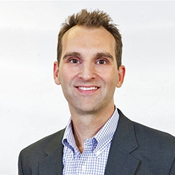
DSDJ Executive Editor
Hailing from Quebec City, Canada, Patrick Boudreault is a native user of Langue des Signes Québécoise and is fluent in American Sign Language, English and French. Boudreault holds a Ph.D. in Educational Psychology from the University of Manitoba at Winnipeg, a M.Sc. degree in Communication Sciences and Disorders from McGill University, and a B.A. degree in Linguistics from Université du Québec à Montréal. He has been involved in the field of sign language teaching and Deaf Studies for more than 20 years in both Canada and the United States. Prior to joining the department, Dr. Boudreault was the coordinator of Masters in Sign Language Education from the Department of ASL & Deaf Studies at Gallaudet, and he also was an Assistant Professor at California State University, Northridge.
More broadly, Dr. Boudreault’s primary areas of interest revolve around the topics of sign language translation, mapping sign language acquisition, developing and designing sign language assessment tools, and most recently toward the emerging field of automated translation. At the heart of his research lies his passion for the social justice and human right of sign language.
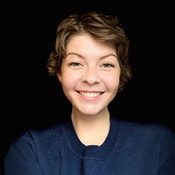
DSDJ Managing Editor
Hailing from San Diego, California, Brianna Keogh has a BA in Psychology with Honors from Gallaudet University. Keogh has four years of experience in the field of research and published a paper about peer support and food security in deaf college students with significant findings. Her passions include contributing to the future of deaf education, advocating for bilingualism, and making information accessible for all.
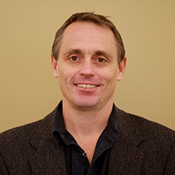
Co-Founder and Advisor
Professor
DST MA Coordinator/Director
ASL Connect
ASL & Deaf Studies Program
Gallaudet University
Dirksen Bauman is Professor of Deaf Studies at Gallaudet University where is serves as coordinator of the Deaf Studies MA Program. He is the Founding Co-Editor of the Deaf Studies Digital Journal along with Dr. Ben Bahan. He is the co-editor of the book/DVD project, Signing the Body Poetic: Essays in American Sign Language (U of California P, 2006); editor of Open Your Eyes: Deaf Studies Talking (U of Minnesota P, 2008); co-editor of Deaf-Gain: Raising the Stakes for Human Diversity (U of Minnesota P, 2014) and co-author of Transformative Conversations: Mentoring Communities among Colleagues in Higher Education (Jossey Bass, 2013).
Dr. Bauman received his BA in English from Colorado College, and soon afterward, worked as a dormitory supervisor at the Colorado School for the Deaf and the Blind. He then pursued an MA degree in English from the University of Northern Colorado and a Ph.D. in English from Binghamton University, State University of New York. He has held teaching positions at the National Technical Institute for the Deaf at the Rochester Institute of Technology and in the Department of English at Gallaudet University. Dr. Bauman is currently involved with the creation of ASL Connect, an online resource for learning ASL and exploring Deaf Studies online.
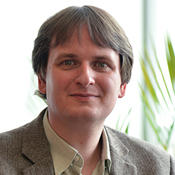
Director
Technology Access Program
Gallaudet University
Dr. Chrisitan Vogler is the director of the Technology Access. He is the principal investigator within the Rehabilitation Engineering Research Center (RERC) on Telecommunications Access, with a particular focus on the accessibility of web conferencing and telecollaboration systems. In his role at the RERC, he is involved in bringing consumers and industry together on accessibility issues, as well as developing prototype technologies for improving the accessibility of such systems.
Prior to joining TAP in 2011, Dr. Volger has worked on various research projects related to sign language recognition and facial expression recognition from video at the University of Pennsylvania; the Gallaudet Research Institute, UNICAMP in Campinas, Brazil; and the Institute for Language and Speech Processing in Athens, Greece. He also runs the DeafAcademics mailing list, a loose network of dead and hard of hearing researchers all over the world.
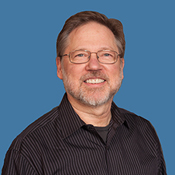
Professor
Georgetown University
Ted Supalla is a Professor of Neurology, Linguistics and Psychology at Georgetown University and the director of the Sign Language Research Lab. Supalla has been working in the areas of ASL linguistics and Deaf Studies for over 40 years. Currently he is reconstructing the early grammar of American Sign Language and its literary traditions, through a structural analysis of ASL as recorded on historical films. He is a co-author of Sign Language Archaeology: Understanding Historical Roots of American Sign Language.
His lab hosts a Historical Sign Language Database (
www.hsldb.georgetown.edu
) as a resource tool for public use. In addition, he teaches a massive open online course entitled: Sign Language Structure, Learning, and Change (
https://courses.edx.org/courses/course-v1:GeorgetownX+SLSX-401-01x+2T2017/course/
).
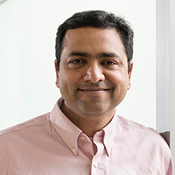
Director
Information Technology Program
Department of Science, Technology and Mathematics
Gallaudet University
His research interests encompass the fields of accessible computing and accessibility/intellectual property law, with the goal of improving information access for deaf and hard of hearing people. For example, he investigates how deaf individuals acquire information through speech-to-text or sign language interpreters, compared with their hearing peers who listen directly. He has developed evidence-based guidelines for captions that provide visual cues to non-speech information. Finally, in the accessibility and intellectual property law field, he advocates for updates in accessible and intellectual property law.

Instruction & Reference/E-Resources Librarian
She joined the Gallaudet University Library team in 2010. She is responsible for managing the Library's electronic resources, such as e-books and e-journals as well as providing instruction and reference as needed to the Gallaudet Community. In addition, she is a native cuer and an avid traveler with a background in Fine Arts. Every once in a while, you can find her leading an ASL tour at the National Gallery of Art or at the Smithsonian American Arts Museum.
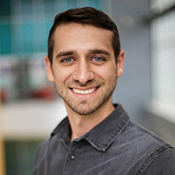
Andrew Biskupiak is a graduate student at Gallaudet University studying Deaf Studies with a concentration in Cultural Studies. Currently, in his last semester of graduate school, Andrew is doing an internship with the Deaf Studies and Digital Journal. Prior to graduate school, he also graduated from the University with honors. His research interests lie in deaf history, deaf LGBTQ individuals, identity experiences, and oral history.
Advisory Board

Director
Continuing Professional Development, Deafness Cognition and Language Research Centre
Dr. Robert Adam is Director of Continuing Professional Development at DCAL, and coordinates both short courses (both online and face to face) and academic modules (British Sign Language, Deafhood and translation courses) that are available through DCAL. Before that, he worked as a Research Associate at DCAL and researched sign language in the everyday lives of Deaf people. Examples of his research include Deaf people who are bilingual in two sign languages, Deaf people who work as interpreters or translators in the Deaf Community and other sociolinguistic research into sign languages. He is also Coordinator of the World Federation of the Deaf Expert Group on Sign Language and Deaf Studies, and has been accredited by the WFD and WASLI as an International Sign interpreter.

Director
Digital Publishing Collaborative
Wayne State University Libraries
Vega
Cheryl E. Ball is Director of the Digital Publishing Collaborative at Wayne State University Library. Since 2006, Ball has been editor of the online peer-reviewed open-access journal Kairos: Rhetoric, Technology, and Pedagogy, which exclusively publishes digital media scholarship. Her recent research in editorial workflows and digital publishing infrastructures can be found in multiple journals and edited collections, as well as on her personal repository, http://ceball.com . She is the Project Director for Vega, an open-access multimedia academic publishing platform, and serves as the executive director of the Council of Editors of Learned Journals.
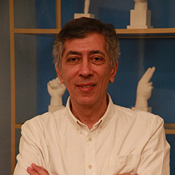
Assistant Professor
Moscow State Pedagogical University and Moscow State Linguistic University.
Vladimir completed his Ph.D. at the Moscow Institute of Correctional Pedagogy of the Russian Academy of Education. In 1996-1997, he took part in an educational project of the Fulbright Foundation in the United States.
Nowadays he is is a President of Moscow society of the Deaf, member of the Council for the Disabled at the Moscow Mayor and a member of the Public Chamber of Moscow.
Author of numerous books on the sociology and culture of the Deaf, he is a champion for equal rights and opportunities for the deaf, frequent speaker at national and international events, including the World Congress of the Deaf.
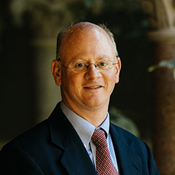
Professor/Director
Schuchman Center
History, Philosophy, Religion & Sociology
Gallaudet University
Joining the Department of History in 1999, Brian H. Greenwald was one of two first President's Fellows at Gallaudet. Currently, Dr. Greenwald is Professor of History and Director of the Drs. John S. & Betty J. Schuchman Deaf Documentary Center. He is coeditor of In Our Own Hands: Essays in Deaf History, 1780-1970 and A Fair Chance in the Race of Life: The Role of Gallaudet University in Deaf History.
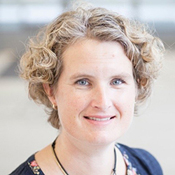
Associate Professor
Department of International Studies and Interpreting
Oslo Metropolitan University
Dr. Hilde Haualand is an associate professor at the Department of International studies and Interpreting at Oslo Metropolitan University, Norway, where she is the head of the section for sign language and interpreting. Some of her publications are on sign language interpreters and professionalism, sign language interpreting services and the impact on service provisions, the politics of video interpreting, disability, identity and marginalization, deaf people and transnational connections, sign language ideologies and. She edited the book Tolking – språkarbeid og profesjonsutøvelse with Anna-Lena Nilsson and Eli Raanes in 2018.
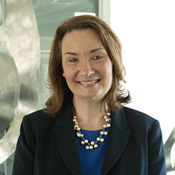
Chair
American Sign Language and Interpreting Education
NTID
She earned her doctorate in education with an emphasis on deaf and hard of hearing students from the University of Kansas. Her areas of expertise include ASL pedagogical methods, ASL national standards, and ASL learning outcomes. She is the co-author of the American Sign Language and Deaf Culture series and is the primary author of Learning Outcomes for American Sign Language Skills: Levels 1-4. She was a consultant for “Outcomes for Graduates of Baccalaureate Interpreter Preparation Programs Specializing in K-12th Grade Settings”. She is a member of the American Sign Language Standards National Committee.
Dr. Kurz serves as Chair of the Board of Directors of Mark Seven Deaf Foundations, a non-profit organization that provides camp programs for deaf and hard of hearing children, children of deaf adults, deaf senior citizens, and ASL learners, in the beautiful Adirondacks.
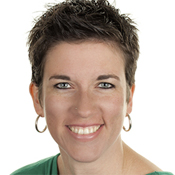
Assistant Professor
Sign Language and Intercultural Research
Heriot-Watt University
Annelies Kusters is Assistant Professor in Sign Language and Intercultural Research at Heriot-Watt University since April 2017. She leads a research project called “Deaf mobilities across international borders: Visualising intersectionality and translanguaging”, funded by the European Research Council (2017-2022) ( mobiledeaf.org.uk ). Annelies Kusters has master’s degrees in Social and Cultural Anthropology (KULeuven in Belgium) and in Deaf Studies (University of Bristol), and a PhD in Deaf Studies (2012, University of Bristol). Between 2013 and 2017 she worked as postdoctoral researcher at the Max Planck Institute for the Study of Religious and EthnicDiversity in Göttingen, Germany. Her current work is situated at the intersection of linguistic anthropology and social geography, in particular, the study of multilingual language practices, language ideologies, transnationalism and mobilities.
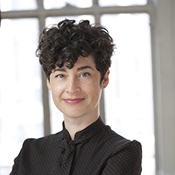
Assistant Professor
University of Connecticut
Human Development/Family Studies &
Women's Gender & Sexuality Studies
Affiliated Faculty, Department of Sociology
Dr. Mauldin is a sociologist whose work focuses on better understanding the power - and consequences - of medicine, medical technologies, and medicalization, especially in relation to deafness and Deaf identity and culture. She is the author of the book Made to Hear: Cochlear implants and Raising Deaf Children (2016, University of Minnesota Press), which won Honorable Mention for the Outstanding Publication Award from the Disability and Society Section of the American Sociological Association. Currently, she is conducting follow up research on deaf children with CIs who attend deaf schools and use ASL. She is also a nationally certified interpreter who primarily works in medical settings.
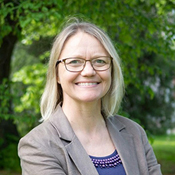
Professor
Sign Language Section of the Department of Linguistics
Stockholm University
Johanna Mesch is Professor in sign language linguistics at the Sign Language Section of the Department of Linguistics at Stockholm University. She is a pioneer in SL-related corpus work, leading the construction of the corpus of Swedish Sign Language (STS), the corpus of tactile sign language of deaf-blind signers and learner’s corpus in STS. Her wider interests include tactile sign language and cross-linguistic comparisons of signed languages. Prof. Mesch serves as vice-chair in (international) Sign Language Linguistics Society 2013–2022.
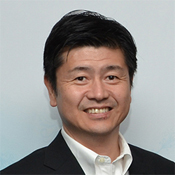
Professor
Tsukuba University of Technology (NTUT)
Japan
He teaches various topics related to Deaf Studies to Deaf and Hard of Hearing students as well as conducts research in the field of Signed Language Linguistics.
He started a career in puppetry (Deaf Puppet Theater HITOMI) before discovering what the Deaf World has to offer. He opted for an academic career for which he earned his Ph.D. in Linguistics from the University of Rochester, New York in the United States.
Dr. Osugi publishes articles in professional journals, covering a range of topics such as The use of word elicitation to identify distinctive gestural systems on Amami Island (1999, Sign Language & Linguistics), and Lexical Sharing Phenomenon among Sign Language Users in Japan(2012, Japanese Journal of Sign Linguistics). He co-edited a variety of sign vocabulary books including A Learner’s Dictionary of Japanese Sign Language (2010, JFD).
Dr. Osugi is currently collaborating with Dr. Mayumi Bono, Associate Professor at National Institute of Informatics, Japan, on a compilation of a large-scale Japanese Sign Language corpus called the “Corpus Project in Colloquial Japanese Sign Language” supported by KAKENHI.
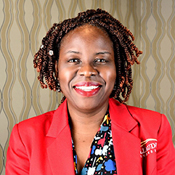
Dean
School of Education, Business, and Human Services
Gallaudet University
Dr. Rashid is Dean of the School of Education, Business and Human Services and has been a member of the faculty at Gallaudet since 1994. She has published scholarly articles and book chapters on subjects as varied as interpreter-deaf professional relationships, deaf people's experience with implants; and deaf communities in Africa. She is the co-author of Citizenship, Politics, Difference: Perspectives from Sub-Saharan African Communities.Washington, DC: Gallaudet University Press (2015). In 2010-11 President Obama appointed her as a White House Fellow, and in that capacity, she worked closely with senior government officials, obtaining an in-depth view into the workings of the US government at the highest levels. Dr. Rashid has also served on the board of the World Deaf Leadership Program, guiding development projects for the deaf communities in South Africa and Thailand. She was the first coordinator of the Gallaudet Leadership Institute's Deaf Women's Leadership Program and implemented the program and curriculum that form the core of the DWLP today.
Dr. Rashid is excited for the possibilities that DSDJ offers and looks forward to serving on this board!
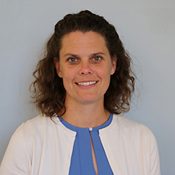
Associate Professor
Linguistics Department
Director
Center for Bilingual Teaching and Learning
Gallaudet University
Dr. Mulrooney is the director of Gallaudet University’s Center for Bilingual Teaching and Learning (CBTL) and a faculty member in the Linguistics department. In her role as director of CBTL, she coordinates training and support to the university faculty for providing the best bilingual teaching and learning environments for students. Her research interests are focused on the relationship between language theory and language use, in particular, how the cognitive linguistic framework enhances one's ability to analyze both spoken and sign language discourse.
